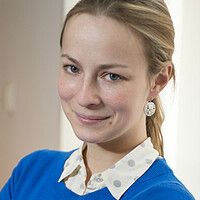Sochi Olympics gold medal count: US climbs to a first-place tie
Loading...
Day seven of Sochi Olympics concluded with a surprising one-for-one tie for Olympic medals between the United States and Norway, with each team now boasting a roster of 4 golds, 3 silvers, and 6 bronzes.
Team USA got its third silver of the Games today in the women’s skeleton race with a second-place finish by Noelle Pikus-Pace, who came out of retirement to pursue a place on the Olympic podium one last time after a fourth-place finish in Vancouver. Lizzy Yarnold of Great Britain placed first, winning gold by a massive margin and bringing the UK its first gold of these Games.
Men’s figure skating concluded with a victory by Yuzuru Hanyu of Japan, who had emerged as the clear favorite from his record-breaking performance in Thursday’s short program but almost saw the gold slip through his fingers after stumbling repeatedly in his free skate. His win was only saved by an equally shaky performance from Canada's Patrick Chan, who walked away with silver. The bronze went to Denis Ten of Kazakhstan.
“It was a mistake-prone evening that will most likely be remembered as the night that Patrick Chan effectively let slip away Canada's best-ever chance for a gold medal in men's figure skating,” wrote the Monitor’s Olympic correspondent. Although, to be fair, he adds, “anytime you get to watch Yuzuru Hanyu skate, it's an enjoyable thing, even if he falls on his rear end, twice. Which he did.”
Meanwhile, Germany continued its all-or-nothing approach to winning medals, fueled by its uncontested dominance on the luge track. Its week-long gold sweep there continued with a victory in men’s luge doubles, following on the heels of Germany's triumph in team competition yesterday.
Germany is now fifth in the world in total medal count, just off the chart above with 10 awards overall. But when it comes to gold, Germany leads the field with a total of seven – five of them in luge. (Switzerland is second, with 5 golds, and US and Norway are third.)
At Rosa Khutor Extreme Park, men’s alpine skiing super combined event brought a surprise win by Switzerland's Sandro Viletta, who trailed by 1.64 seconds after the downhill run but skied a superb slalom leg. The silver went to Croatia's Ivica Kostelic and the bronze to Italy's Christof Innerhofer.
Falling short of the podium were two veteran US competitors, Bode Miller (the gold champion in super combined in Vancouver) with 6th place and Ted Ligety with 12th.
On the cross-country course, men’s 15km classical-style race concluded with another gold for Switzerland (won by Dario Cologna), with Sweden taking both silver and bronze.
In biathlon, Darya Domracheva of Belarus won the women’s 15km individual event in her second victory of the Games (she also placed first in the 12.5km pursuit three days ago). Another Belarusian gold came today in the form of a surprise victory by Alla Tsuper in women's aerials.
Host country Russia continued to grow its medal count today, although far less swiftly than its Olympic committee would have liked. The day brought it a sole bronze medal in women’s skeleton – which actually marks the first time the country medals in this Olympic sport.








